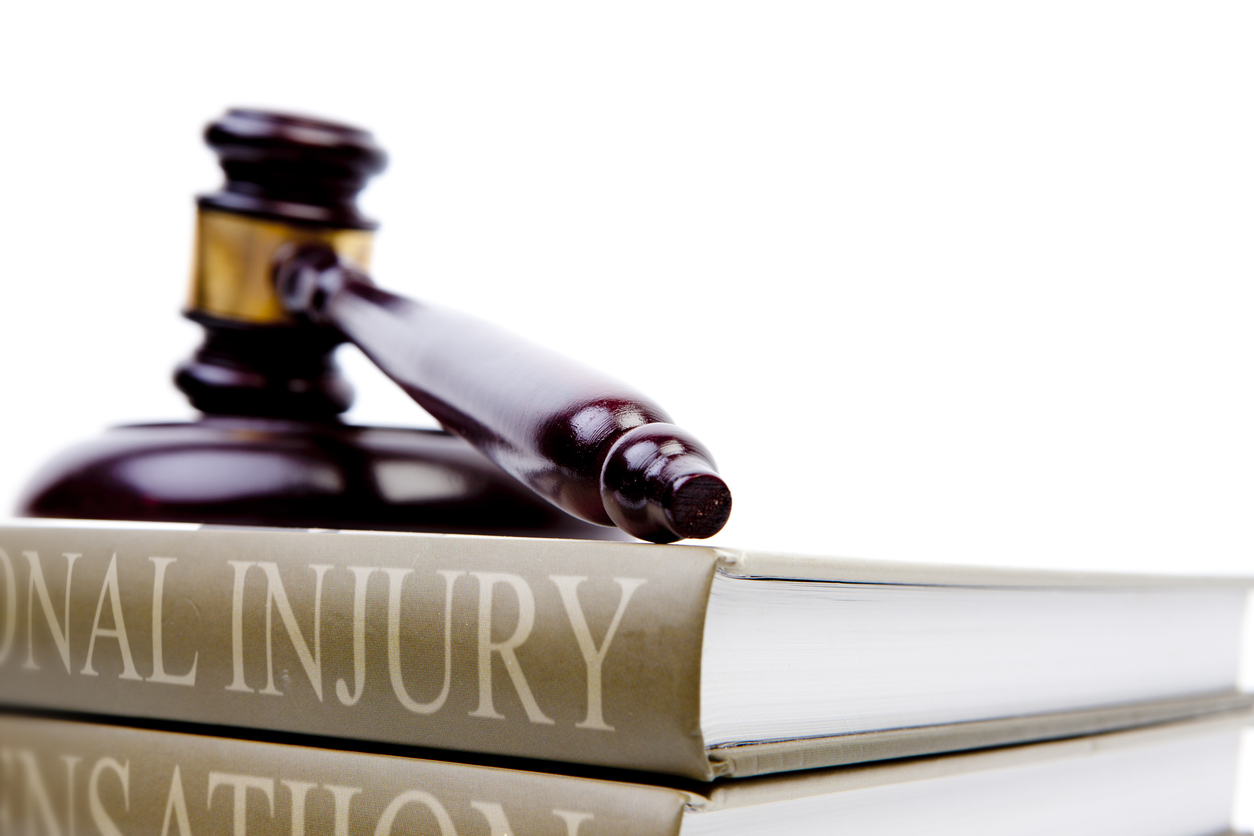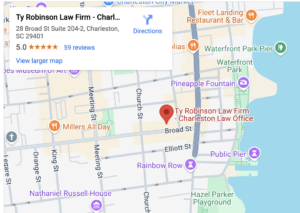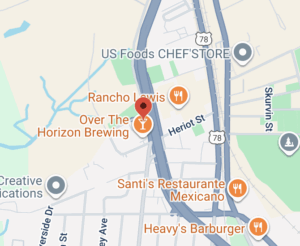Ty Robinson | October 29, 2025 | Personal Injury

If you’ve suffered harm due to someone else’s actions, you may have heard the terms “tort law” and “personal injury law” used interchangeably. While these areas of law are closely related, they’re not exactly the same. Understanding the distinction is important—especially if you’re considering legal action after an accident in South Carolina.
Below, we explain how tort law and personal injury law differ, how South Carolina handles injury-related claims, and when to speak with an attorney about your case.
What Is Tort Law?
Tort law is a broad legal category that governs civil wrongs. Its purpose is to hold individuals or entities accountable for harmful conduct that causes injury or loss to another party.
Torts generally fall into three main categories:
- Intentional torts: These include deliberate actions like assault, false imprisonment, or intentional infliction of emotional distress.
- Negligence: The most common form of tort, this occurs when someone fails to exercise reasonable care, resulting in harm to another (e.g., car accidents, slip and falls).
- Strict liability: In these cases, a party can be held responsible regardless of intent or negligence, such as in defective product claims or certain dog bite cases.
Tort law aims to make the injured party “whole” again through financial compensation, but it can also address harm to property, reputation, or emotional well-being—not just physical injuries.
What Is Personal Injury Law?
Personal injury law is a specific branch of tort law that focuses solely on physical, emotional, or psychological harm suffered by an individual.
Most personal injury claims in South Carolina arise from:
- Car and truck accidents
- Motorcycle crashes
- Slip and fall incidents
- Medical malpractice
- Dog bites
- Nursing home abuse or neglect
In these cases, a victim may be entitled to compensation for medical expenses, lost income, pain and suffering, and other damages. Personal injury law centers on the victim’s personal harm, rather than property damage or defamation, which would fall under other tort categories.
Key Differences Between Tort Law and Personal Injury Law
Although personal injury law falls under the umbrella of tort law, there are several differences between the two. Understanding these distinctions can help clarify the type of claim you may have.
Here are the main differences between tort law and personal injury law:
- Scope: Tort law is a broad category that includes all civil wrongs, while personal injury law deals specifically with bodily or emotional harm.
- Types of harm: Tort law can address damage to property, financial losses, and reputation, whereas personal injury law is focused on injuries to a person.
- Legal outcomes: Tort law may involve claims like trespass, libel, or nuisance. Personal injury cases aim to recover compensation for the impact of physical harm and its effects on your life.
- Applicable laws and procedures: While the rules for tort and personal injury cases often overlap, some procedural elements—such as statutes of limitations or damage caps—may differ depending on the type of claim.
In short, all personal injury claims are torts, but not all torts are personal injuries. If you’ve been injured, it’s crucial to identify which area your claim falls under so you pursue the correct legal path.
How South Carolina Law Treats Personal Injury Claims
South Carolina follows specific rules when it comes to personal injury claims. If you’re considering legal action, these are some important state-specific laws to understand:
- Statute of limitations: You typically have three years from the date of injury to file a personal injury lawsuit in South Carolina. Missing this deadline could bar you from recovery.
- Comparative negligence: South Carolina uses a modifie
- d comparative negligence rule. If you’re found less than 51% at fault, you can still recover damages—but your award will be reduced based on your share of the blame.
- Damage caps: Certain types of personal injury cases, like medical malpractice, may be subject to caps on non-economic damages (such as pain and suffering).
- Wrongful death claims: If a loved one was killed due to someone else’s negligence, South Carolina law allows eligible family members to seek compensation through a wrongful death lawsuit.
These rules can significantly impact your claim, which is why working with a qualified South Carolina personal injury lawyer can make a big difference in your outcome.
When Should You Contact a South Carolina Personal Injury Lawyer?
Not every minor accident requires legal help—but in many situations, consulting an attorney is in your best interest. Here are some scenarios where hiring a lawyer is highly recommended:
- You suffered serious or permanent injuries
- There is a dispute over who was at fault
- The insurance company is delaying or denying your claim
- Multiple parties may be responsible
- Your injury occurred due to a dangerous product, medical error, or hazardous property
In any of these cases, a personal injury lawyer can help you gather evidence, calculate your damages, negotiate with insurers, and, if necessary, take your case to trial.
Even if you’re unsure whether you have a valid claim, a free consultation with an attorney can provide clarity and peace of mind.
Contact a South Carolina Personal Injury Lawyer for a Free Consultation
If you’ve been hurt in an accident in South Carolina, you don’t have to navigate the legal system alone. A personal injury attorney can explain your rights, help you understand how tort law applies to your situation, and fight for the compensation you deserve.
If you were injured in an accident in Charleston, South Carolina, and need legal help, contact our Charleston personal injury lawyer at Ty Robinson Personal Injury & Car Accident Law Firm to schedule a free case review today.
Ty Robinson Personal Injury & Car Accident Law Firm
28 Broad St Suite 204-2
Charleston, SC 29401
(843) 278-2222



